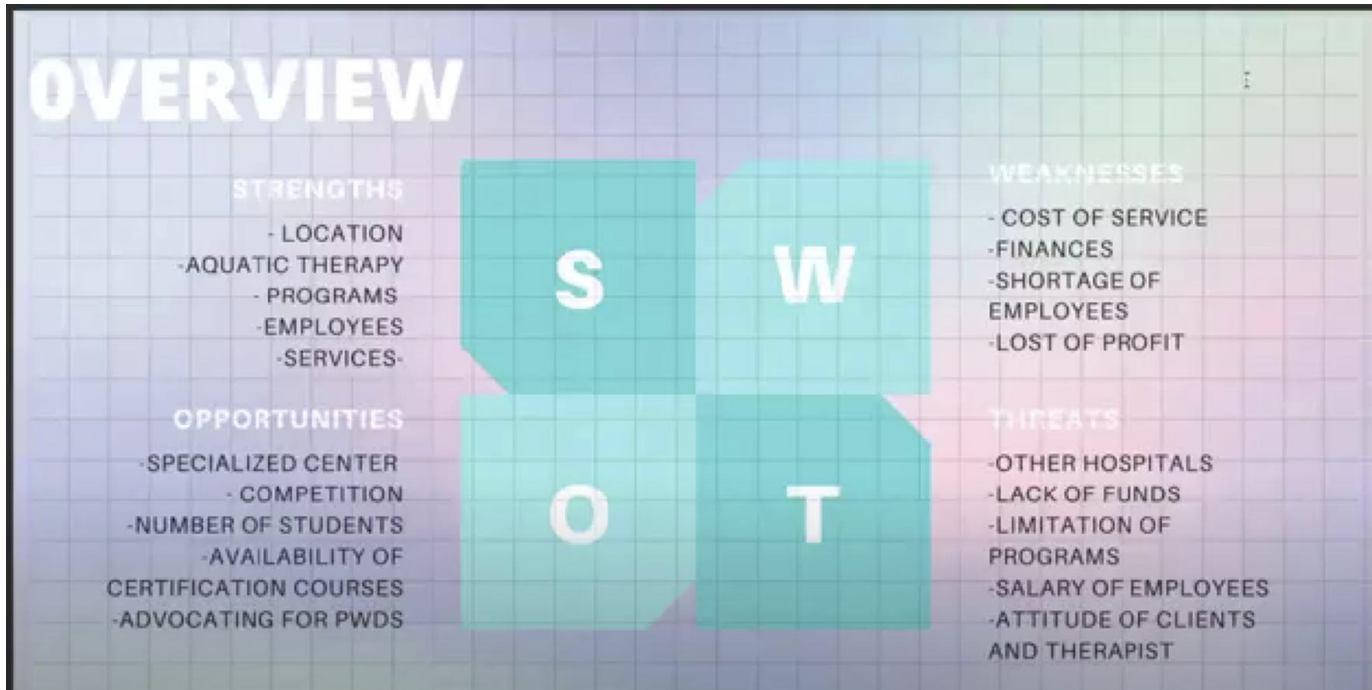S1L2. Management Functions: Planning
1/38
There's no tags or description
Looks like no tags are added yet.
Name | Mastery | Learn | Test | Matching | Spaced | Call with Kai |
|---|
No analytics yet
Send a link to your students to track their progress
39 Terms
A process of defining an organizations direction, setting goals, and outlining strategies to achieve them
Organizational planning
Managerial Function: Planning:
Vision & Mission
Strategizing
Goals and objectives
Importance of planning
Improves future performance
Minimizes risk and uncertainty
Facilitates the coordination of activities
Provides direction for action
Identifies future opportunities and threats
Set out standards for controlling
Types of organizational planning
STOC
Strategic planning
Tactical planning
Operational planning
Contingency planning
Types of organizational planning: __: Setting of broad, long range goals by top managers
Strategic planning
Types of organizational planning: __: A long term, systematic process by which an organization defines its direction, sets priorities and allocates resources to achieve its mission and vision
Strategic planning
Communicates the organizations reason for being, and how it aims to serve its key stakeholders
Mission
It also includes a summation of the firms values
Mission
Describes the organizations aspiration for the future
Vision
Play the role of a strategic “north star” providing focus and long term alignment
Vision
Vision: __: A specific date in the future by which the entity will determine if it has achieved the strategy and the vision
Time horizon
Usual time horizon
3-5 years
Vision: __: Singe or small set of measurable goals that can be objectively assessed for achievement
Measurability
Vision: __: A succinct statement of how the entity will effectively deliver its services, meet the needs of its clients, and achieve the vision
Unique approach
Guiding principles and beliefs that shape the orgs culture, behavior, and decision making
Core values
Vision includes
Time horizion
Measurability
Unique approach
__: Who we are
Mission
__: What we value
Mission
__: What we want to become
Vision
__: How we will achieve our vision
Strategy
__: How we gauge our degree of success
Goals and objectives
READ
CRS VISION
We are an internationally acknowledged educational institution of experts producing nationalistic and globally-competitive Thomasian leaders in the field of rehabilitation sciences committed to quality healthcare services. We will be the standard for academic excellence, research and community service, the preferred school for rehabilitation sciences programs, the top performing school in licensure exams and the recipient of highest accreditation levels.
READ
CRS MISSION: To do this, we will:
1. Provide students the best Thomistic education that will enable them to deliver quality healthcare services.
2. Develop faculty and staff for teaching expertise and professional advancement to ensure productivity and job satisfaction and to promote harmonious environment.
3. Be champions of ethical generation and utilization of knowledge through research, responsive to the needs of the profession and the industry.
4. Promote self-reliance and resilience among our partner communities and institution through sustainable and research-based community health and rehabilitation programs.
5. Establish and maintain strong linkages with the alumni and provide opportunities for career growth and transfer of capabilities.
Types of organizational planning
Tactical planning
Operational planning
Contingency planning
Types of organizational planning:__: Identification of specific, short range objectives
Tactical planning
Types of organizational planning:__: Responsibility of middle/lower level managers to set and oversee tactical strategies
Tactical planning
Types of organizational planning:__: Setting of work standards and schedules
Operational planning
Types of organizational planning:__: Back up plans in case primary plan fails
Contingency planning
5 process steps of organizational planning
Strategic Plan
Tactical Plan
Operational Plan
Execute Plan
Monitor progress and adjust
Models of Planning Tools:
SWOT
Gantt chart
PERT (Program evaluation review technique)
Balanced Scorecard (BSC)
Logic Model
__: Designed to be used in the preliminary stages of decision making
SWOT
__: Common tool in performance analysis and in evaluation studies
SWOT
__:Focus in the identification of strong and weak points within an organization and the analysis of opportunities for and threats to, furhter development
SWOT
SWOT: Internal analysis:
Strengths and Weaknesses
Internal Analysis: __: An internal characteristic that contributes substantially to the realization of the organizations mission
Strengths
Internal Analysis: __: An internal characteristic that threatens the function of the organization
Wekaness
External Analysis: __: An external fact of development that if taken advantage of, can substantially contrubute to the realization of the organizations mission
Opportunity
External Analysis: __: An external fact of development that has or can have a substantial negative effect on an organizations performance
Threat
READ
